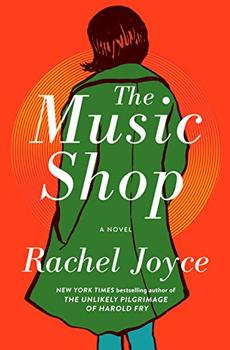Summary | Excerpt | Reading Guide | Reviews | Beyond the book | Read-Alikes | Genres & Themes | Author Bio

In May 1994, the members of the Van Ness String Quartet are completing their final graduate recital at a San Francisco conservatory and preparing for the Esterhazy quartet competition in the Canadian Rockies. These four talented musicians – Jana, first violin; Brit, second violin; Henry, viola; and Daniel, cello – have no idea what the next 15 years will hold for them: a cross-country move, romances begun and lost, and career successes and failures. Drawing on her own history as a violinist and cellist, Aja Gabel infuses her debut novel, The Ensemble, with the simultaneous uncertainty and euphoria of both the artistic life and early adulthood in general.
An alternating intimate third-person perspective gives glimpses into these main characters' inner lives. Jana grew up poor in Los Angeles with an alcoholic single mother who had a rotating cast of boyfriends. Brit's parents, themselves amateur musicians, died while she was in college. Henry was a teen prodigy who started college early, while Daniel feels like he has to work twice as hard as the others just to keep up. Jana and Henry, who met at Philadelphia's Curtis Institute of Music, sometimes wonder if they should have remained soloists – a much more glamorous career choice. For all four musicians, the question of whether money equates to happiness is a pressing one: they spend a lot of time thinking about how they sound together, but not very much considering whether they each truly have "inner harmony."
The Esterhazy competition provides a couple of the novel's key turning points. Brit and Daniel have recently broken up after two years together, and Jana does something extreme to try to get the quartet a leg up on the competition. But they don't even make it past the first round. With so much going on between and within them – Jana's worry over her mother, Brit's sadness at being an orphan, and her tension with Daniel after their romance ends – it's not really a surprise that things fall apart while they're playing. By the time we meet up with the quartet again in the autumn of 1998, though, things have changed. They've all moved to New York City together, and two of them are in new relationships. They're all more confident musicians now, and their rendition of Shostakovich wins them the Esterhazy string quartet competition that year.
Personal events abut wider world events in particularly effective ways, as when Jana has to attend a family funeral the day after the start of the Iraq War in 2003. We see the ways that time strains these musicians' relationships and even their bodies – Henry develops tendonitis and Jana has persistent back pain. The move to New York makes them question what they're looking for when the city feels like such a letdown. I can think of other books with a similar setup, following four university friends as they navigate early adulthood in a big city (such as Invincible Summer by Alice Adams and Why We Came to the City by Kristopher Jansma), but The Ensemble is unique in its evocative descriptions of classical music and its bittersweet reflections on how time changes us:
As the sad second movement started, Henry realized that the way they played now, compared to the way they played during their graduation concert, was different and better. They'd arrived somewhere. Playing was no longer cathartic, that strange mixture of pain and pleasure one became used to in one's twenties and thirties. It was no longer a means to an end, a way to go from stifled to expressed, from caught to free, from panicked to all right. Instead, playing was like lifting a sheet to reveal the secret, beautiful gears and pulleys at play beneath the work of living - that was it, like letting everyone in on a secret, instead of working their own way out of one. It was a different kind of relief.
Especially early on, there is a lot of backstory and internal contemplation, and more scenes and dialogue would help us to engage with the characters. I also felt that the point-of-view could have changed a bit more frequently; the first quarter of the book is from Jana and Brit's perspectives, and for a while I worried we'd never hear from the male characters, which would be a strangely biased view of proceedings. But once I got past this point, the novel really hit its stride, and I came to care about these musicians and sympathize with their longings to make the most of their lives. I think The Ensemble will mean even more to readers who are involved in music, but anyone can relate to the slow fade from youth into middle age and the struggle to integrate art into the rest of life.
![]() This review was originally published in The BookBrowse Review in May 2018, and has been updated for the
August 2019 edition.
Click here to go to this issue.
This review was originally published in The BookBrowse Review in May 2018, and has been updated for the
August 2019 edition.
Click here to go to this issue.

If you liked The Ensemble, try these:

by David Mitchell
Published 2021
The long-awaited new novel from the bestselling, prize-winning author of Cloud Atlas and The Bone Clocks.

by Rachel Joyce
Published 2018
A love story and a journey through music, the exquisite and perfectly pitched new novel from the bestselling author of The Unlikely Pilgrimage of Harold Fry and The Love Song of Miss Queenie Hennessy.
Your guide toexceptional books
BookBrowse seeks out and recommends the best in contemporary fiction and nonfiction—books that not only engage and entertain but also deepen our understanding of ourselves and the world around us.